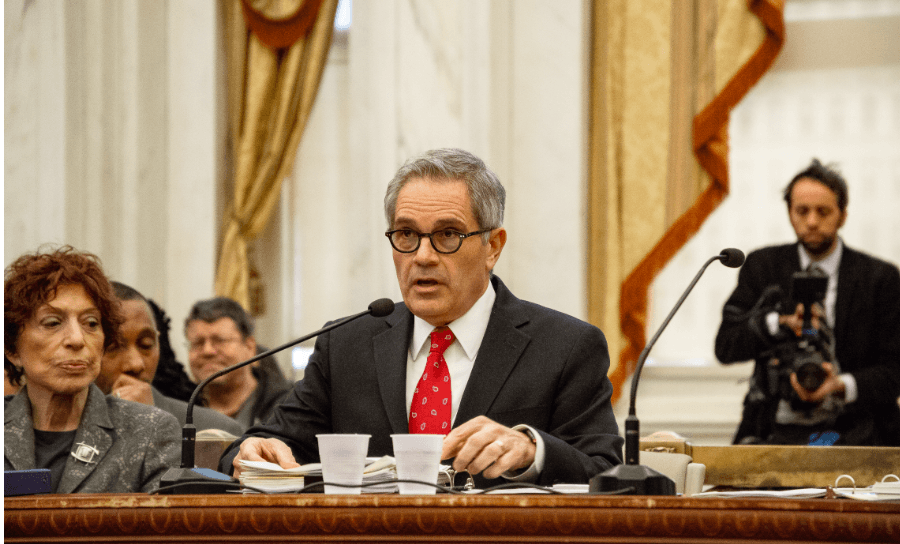Political Report
Study Measures Impact of Larry Krasner’s New Bail Policy in Philadelphia
Krasner limited monetary payments as a condition for pretrial release. A new study finds that this had no ill effect on court attendance or recidivism.

Larry Krasner limited monetary payments as a condition for pretrial release. A new study finds no ill effect on court attendance or recidivism.
In February 2018, a month after becoming the district attorney of Philadelphia, Larry Krasner announced a new policy meant to limit the use of monetary payments as a condition for pretrial release—a widespread practice that leads to differentiated outcomes based on people’s financial means. The policy was to not seek cash bail from people charged with some misdemeanors and nonviolent felonies.
Aurelie Ouss and Megan Stevenson, professors at the University of Pennsylvania and George Mason University, released a study this week assessing the policy’s impact at the one-year mark. The study’s jist:
- The study finds that the share of eligible defendants released on recognizance (and thus without monetary conditions) grew 12 percentage points during the past year. They also find that the share who spent at least one night in jail pretrial decreased 5 percentage points. However, they find no statistically significant impact on longer-term detentions.
- There being any effect is in and itself noteworthy because prosecutors’ recommendations are not binding on bail commissioners. The authors write that the results “demonstrate the role of prosecutors in determining outcomes over which they have no direct authority.” Nevertheless, there are also signs that the judiciary is blunting the reform’s impact. Samantha Melamed reports in the Philadelphia Inquirer that bail commissioners are still imposing bail on most of the felony cases, and on some of the misdemeanor cases, for which Krasner’s policy is to not seek bail.
- Critics of bail reform argue that it could enable people to commit new offenses and to evade their court dates. But the study finds that the county’s decreased reliance on monetary payment and pretrial detention had no ill effect on any of three measures they tested: “failing to appear court (FTA); being charged for a new offense; and being charged for a new serious offense.” The authors write: “We find no evidence that any of these outcomes got worse when defendants no longer had monetary bail or other conditions of release. These results demonstrate that monetary bail can be replaced by release on recognizance for a sizeable number of defendants with no detectable impacts on non-appearance or pretrial crime.”
Krasner touted this study and his policy in a news conference Tuesday with Mayor Jim Kenney. “When you don’t tear apart people’s lives, and when you keep them in contact with the things that keep them on course, they are less likely to commit crimes in the future,” he said. He also urged the judiciary to limit the use of monetary conditions in more cases in accordance with his policy. Elsewhere in the country, as in New York, district attorneys and their associations have led the charge against efforts to reform the bail system.
This article is published as part of the weekly Appeal: Political Report newsletter, by Daniel Nichanian.
